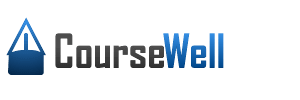> Beyond the Bubble: Assessing Your Learning Without Multiple Choice Questions
Beyond the Bubble: Assessing Your Learning Without Multiple Choice Questions
By Coursewell Staff
Multiple choice questions (MCQs) are a ubiquitous feature of our education system. They're quick, efficient, and easy to grade, but are they the best way to measure our learning?
The truth is, MCQs often only test our ability to recall facts and figures. They don't tell us much about whether we can understand and apply what we've learned, which is arguably more important.
So, how can we assess our learning in a more meaningful way? Here are a few tips:
1. Get active
Instead of passively consuming information, try to actively engage with it. Explain the material to a friend or classmate in your own words. Practice applying the concepts you learned to real-world scenarios or problems. Create your own questions and try to answer them without referring to your notes or textbook.
2. Get creative
Don't be afraid to think outside the box! Try drawing or diagramming the information you've learned. Write a story, poem, or song about it. Engage in debates or discussions about the material with others.
3. Get reflective
Take some time to reflect on what you've learned. How does this new material relate to what you already know? Are there any limitations or exceptions to the concepts you learned? What are your strengths and weaknesses?
4. Use a variety of tools
There is no one-size-fits-all approach to assessment. Experiment with different methods and find what works best for you. Some other options include:
Portfolios: Collect samples of your work, such as essays, projects, and presentations, to showcase your learning over time.
Self-evaluations: Reflect on your progress and identify areas where you can improve.
Peer feedback: Ask your classmates or colleagues to provide feedback on your work.
5. Talk to your instructor
Your instructor is a valuable resource who can help you assess your learning and identify areas where you need improvement. Don't be afraid to ask for feedback or suggestions.
By using a variety of assessment methods, you can get a more complete picture of your learning and identify areas where you can improve. Remember, the goal is not to get perfect scores on every test, but to learn and grow. So, ditch the bubble sheet and embrace the world of authentic assessment!
I hope this article has given you some ideas for how to assess your learning beyond multiple choice questions. Remember, the most important thing is to find methods that work for you and help you learn effectively.
Happy learning!
P.S. Did you know that there are several different types of multiple-choice questions? Some, such as those that require you to choose the best answer from a set of plausible options, are quite good at measuring higher-order thinking skills. However, others, such as those that simply ask you to recall a fact, are not as effective. So, if you're going to use multiple-choice questions, make sure you're using the right kind!
